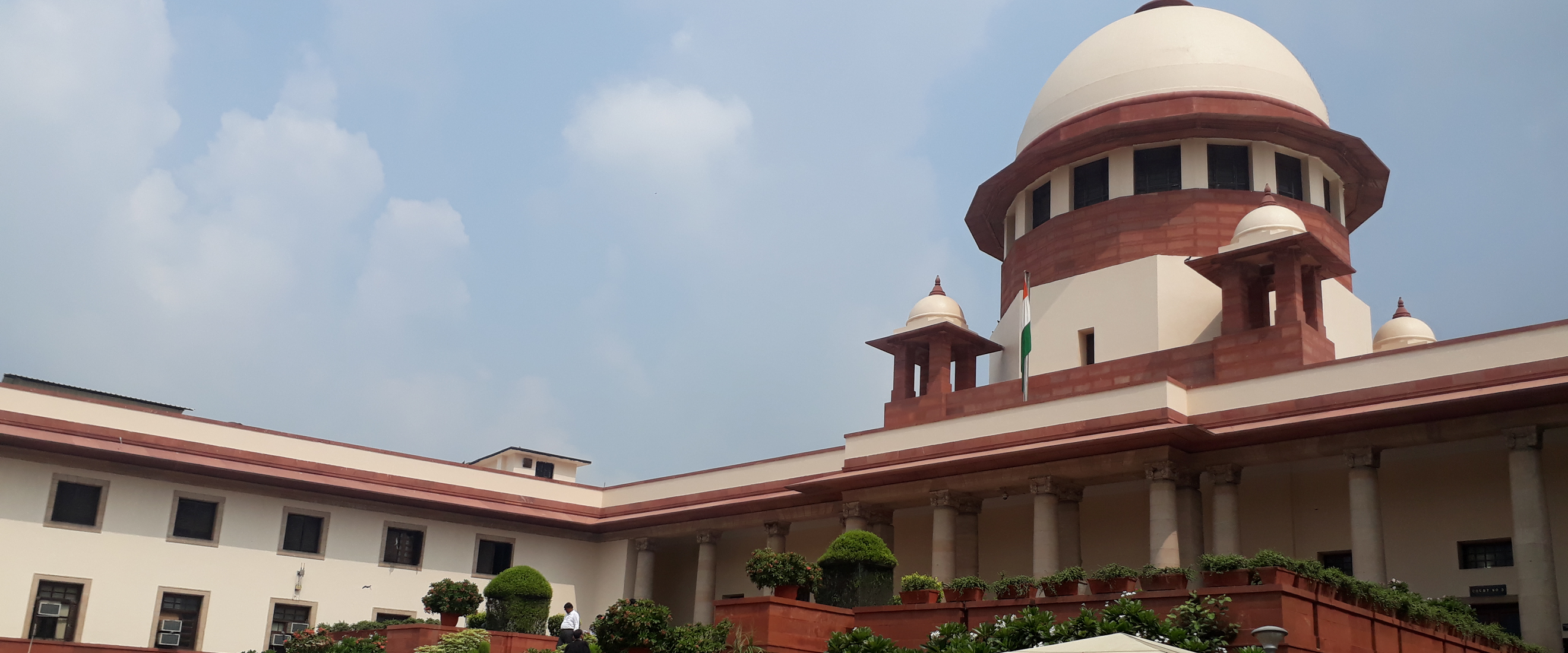Analysis
10 Cases that Shaped India in 2019
The primary themes in the ten most important cases that shaped India in 2019 seemed to revolve around democracy, citizenship and religion.

In the second edition of our ‘10 Cases’ series, we bring to you a selection of ten cases that shaped India in the year gone-by. Unlike the 2018 edition, this year, we have arranged the cases into three categories based on their common themes: religion, democracy and institutional issues.
Below, you will find a brief overview of these cases and the challenges that the Court grappled with in resolving them. Please click on the individual cases for a more detailed breakdown.
Theme 1: Religion
In 2019, the Supreme Court of India confronted longstanding questions pertaining to the role of religion and faith in a secular democracy. In the Ayodhya title dispute, the Court had to delineate the role of faith in a property dispute. A central issue in the case revolved around the evidentiary weight of belief and religious scripture. In the Sabarimala Review Petitions, the Court assessed whether there were grounds to reverse its 2018 judgment, wherein it had declared unconstitutional the Sabarimala Temple’s practice of excluding women of certain age categories. The 2018 judgment had held that the religious custom violated the fundamental right to equality of female worshippers.
For a better understanding of the timeline of these disputes, the decision of the Court and some of the ‘must-reads’ on these controversies, click on the links below:
Theme 2: Democracy and Citizenship
2019 saw a number of decisions from the Supreme Court with substantial implications for democracy and citizenship in India. In April, the Court directed that the Voter Verified Paper Audit Trail (VVPAT) slip matching be carried out in more voting booths. In the same month, it made an interim order to all political parties to confidentially declare to the Election Commission the funding they had received under the Electoral Bonds Scheme.
At around the same time, the Court also engaged with questions of citizenship. It closely monitored the National Register of Citizens (NRC) exercise in the State of Assam. The final draft of the NRC was published on August 31st, excluding around 19 lakh residents. Finally, in the case concerning the Finance Act, 2017, the Court cast a shadow over the way in which the Aadhaar judgment had validated the passing of Aadhaar legislation as a Money Bill. In doing so, it placed special emphasis on the importance of bicameralism for the healthy functioning of parliamentary democracy.
Given that a final judgment in the Electoral Bonds Scheme is awaited and the scope of Money Bill will come up before a larger bench, these decisions may hold clues to the Court’s approach towards vital questions concerning India’s democracy.
A more elaborate background of these key cases and Court’s responses in them may be accessed from clicking on the links below:
3. Assam’s National Register of Citizens
4. Tribunals and the Finance Act
6. VVPAT
Theme 3: Institutional Issues
The Court was confronted with multiple challenges to its institutional practices in 2019. In November, the Court interpreted the applicability of Right to Information (RTI) requests in relation to itself broadly. Questions related to judicial appointments also cropped up, with the delay in the appointment of Justice Akil Kureshi being challenged by the Gujarat High Court Advocates’ Association.
There was also the issue surrounding the propriety of Justice Arun Mishra serving on the Constitution Bench set up to decide the Land Acquisition matters. Another issue which reared its head was the Court’s repeated directions to submit evidence in sealed covers. This was criticized as being detrimental to the principles of natural justice and taking away transparency in the decision making process. In 2019, on the institutional front, the Court also faced criticism for the way in which it handled the sexual harassment allegations against CJI.
In the links below, we bring you the decisions from 2019, which had the most bearing on Court’s institutional practices.
7. RTI and Judicial Independence
8. Elevation of Justice Akil Kureshi
9. Land Acquisition – Recusal of Justice Arun Mishra
10. Sexual Harassment and the CJI
Other
Another crucial judgment delivered by the Court in 2019 pertained to the SC/ST (Prevention of Atrocities) Act, 1989. On October 1st, it overruled the widely-criticized Subhash Kashinath Mahajan judgment, thereby undoing the safeguards which had made it more difficult for SC/ST members to file cases under the Act. Read more about the case using our Case Background: